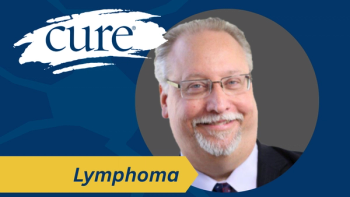
'Not Our Daughters,' Vows a Survivor of Lymphoma Caused by Breast Implants
One survivor describes her journey with breast implant associated anaplastic large cell lymphoma, and how she advocates for more awareness to protect future patients.
I am a survivor of breast cancer who had bilateral mastectomies in 2012 followed by six months of chemotherapy. In 2013, I had Mentor smooth saline implants placed after my plastic surgeon told me I had no chance of getting another cancer. After multiple surgeries to fix the placements, in 2014 my plastic surgeon talked me into trying new, State-of-the-art Allergan 410 textured Implants. In no way would I have gotten implants if he had told me I faced a risk of getting another cancer.
On July 31, 2018, my left breast swelled up to three times the size of my right. The next day, I went in to see my plastic surgeon. I told him I had researched my symptoms and thought it was breast implant associated anaplastic large cell lymphoma (BIA-ALCL). He said: “That is so rare; there is no way you have that.” He didn’t even think my breasts looked odd. He ordered an MRI per my request. It showed seroma and fluid (which can develop due to trauma to the breast). A radiologist put in a drain and sent my fluid in for testing for the protein CD30, which is associated with BIA-ALCL, again at my request. One week later, my drain was removed, and a day after that my body went into septic shock, nearly fatally. Upon emergency surgery to remove the left implant that was causing the infection, the plastic surgeon decided to sample my capsule (scar tissue that forms around a breast implant) in four spots, even though my husband had asked him to instead remove it in its entirety in case the cancer was present. I was in intensive care fighting for my life for almost a week.
Yes, the CD30 test came back positive! Not one physician, including my oncologist and plastic surgeon, could answer any questions about this cancer. A plastic surgeon can put these implants in, knowing they can cause this cancer, but doesn’t have to be informed about the disease or its symptoms. Is this fair to patients who’ve had breast cancer? Haven’t we gone through enough?
From my home in Illinois, I’ve had to travel to Mayo Clinic in Minnesota and The University of Texas MD Anderson Cancer Center in Houston for all of my care. In October 2019, I received a diagnosis of stage 4 BIA-ALCL with only one year to live. My doctor started me on Adcetris (brentuximab, a drug that inhibits the activity of CD30) in December, and I just finished my last treatment. My eighth PET scan in less than two years is scheduled for June 8. I can only pray that this treatment worked.
I tell you my story so that other women with cancer can be informed of the risks of breast implants, particularly textured ones.
Due to the recall of the Allergan implants in 2019, many women have opted to have their breast implants removed. Furthermore, insurance companies are recognizing and paying for some of these procedures. Women should know that, if the seroma is found to be positive for CD30, a surgeon needs to remove not only the implants but also the entire capsule through total en bloc or total capsulectomy. No doctor should remove a partial or sample of a capsule, as that can spread the cancer, which is what happened in my case. Once removed, all capsules need to be pathologically tested for CD30, as the human eye can’t detect BIA-ALCL, and at this time there is no blood test available.
Many plastic surgeons feel that, if the patient looks normal and the implants look fine, then no testing is needed. This is not true. The only way we can find out how many women have this cancer is by testing every single capsule that is removed. There are hundreds of thousands of women currently sick with implants that no physician will touch in fear of being sued, and whose health insurers are refusing to pay for removal. There are also many inexperienced plastic surgeons taking advantage of the recall and charging phenomenal amounts of money to take implants out without being board-certified, as well as neglecting to test for CD30 in these symptomatic women. As a result, these patients are on their own to find somewhere to send their capsules to be tested.
The emergence of BIA-ALCL has truly been a nightmare for many women. I met most of my closest friends in the BIA-ALCL community when I spoke before the FDA at a gathering with 70 other women on March 26, 2019. I also attended the First World Conference on BIA-ALCL in Rome this last October. It’s very sad that, as a patient, I have to study my own cancer to get the answers I need for diagnosis and treatment. No woman should have to learn about a cancer from the internet and Facebook.
Our community does not consider this cancer rare, as so many have described it; rather, it’s cancer that has existed without recognition that is finally being studied and understood. As a result, we believe that many more women will be diagnosed properly. By generating much-needed attention around this cancer, we hope to contribute to the diagnosis and treatment of women with the disease and to the prevention of more cases in the future.
As we say very frequently these days: Not our daughters.




